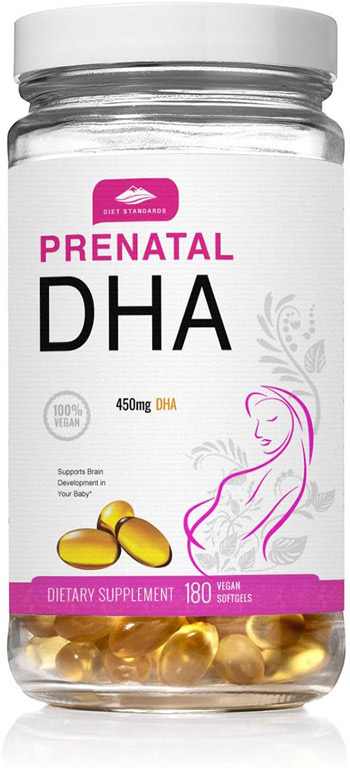What is DHA?
Docosahexaeonic acid is an omega-3 fatty acid. Understandably, this important compound usually goes by its nickname, DHA.
Omega-3s are incredibly important for good health for both adults and teens. DHA, in particular, is critical for brain, eye, and skin health. It also plays a crucial role in the brain and eye growth of a developing fetus.
Where does DHA come from?
DHA comes from tiny algae.
Animals can either get DHA from eating the algae or from eating other animals that eat algae. As a consequence, it is typically mofre concentrated in animals that are higher up in the food chain.
There are also some natural forms of DHA found in certain seed oils.
There are many DHA supplements, and they derive their DHA from a variety of plant and animal sources. They also come at different pricing levels.

High Sources
Finding the best source of DHA is a bit of a balancing act. It often takes more than a Google™ search.
On the one hand, you want to find a source that is easily absorbed. Yet, you also want to find one that is ethically sourced and certified. You also want to make sure that there are no other unintended side effects. Further, you can find supplements that are third-party tested, such as through NSF International. Some may even include additional benefits like probiotics.
Your main options for DHA are fish, natural and processed fish and other animal oils, as well as ALA and algal oils. You may want to check with the International Fish Oil Standards to see which option is the best for you.

Fish
One way to get enough DHA is to find recipes and eat a lot of fatty fish, especially salmon, tuna, herring, and trout. Though this seems like the most natural way to get enough DHA, most fish contain high amounts of heavy metals. Finding recipes and consuming enough to meet your DHA requirements could result in you consuming too many dangerous toxins and metals.
In addition, many people and teens don’t eat much fish because of the cost or the taste. Others, including vegetarians and vegans, do not consume animal products for a variety of reasons.
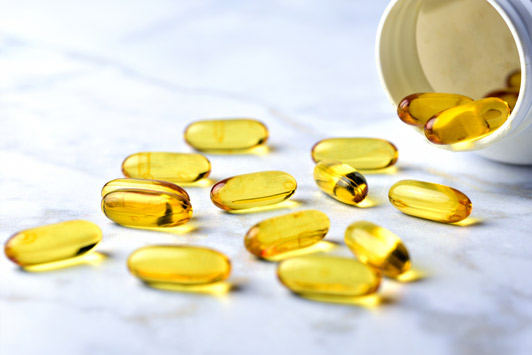
Natural Fish Oils
For people and teens who do not oppose eating meat, natural fish oils are a DHA supplements option. Though it is cheaper and easier than eating a lot of fish, it does run a high risk of contamination with metals.
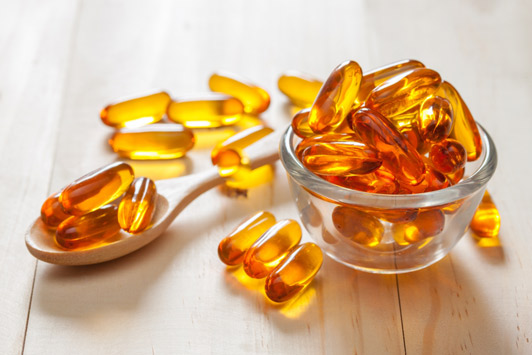
Processed Fish Oils
Processed fish oils supplements have a higher concentration of DHA than natural fish oil and are generally filtered of toxins.
Unfortunately, however, processing it means that it is not absorbed as easily and that it goes bad quickly. Since it is still ultimately derived from a living creature, it is also not a realistic choice for vegans or vegetarians as supplements choices.
Some natural and processed fish oils supplements may be certified by International Verified Omega-3, a non-profit designed to help people find the right supplements for them.
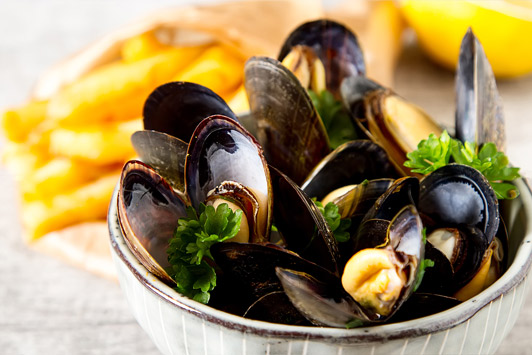
Other Animal Oils
Other animals, such as mussels, krill, and even seals contain high amounts of DHA. Some supplements are made using oil from these animals. These supplements can be easily absorbed like their fish cousins, and are less prone to contamination. They also tend to taste better.
On the other hand, however, these supplements (especially mammalian seal oil!) are certainly not certified to be vegan or vegetarian friendly.
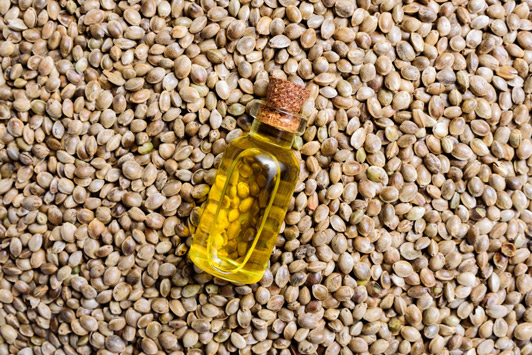
ALA Oils
Seeds such as hemp, flax, and chia all contain high amounts of DHA, which is great news for vegans and vegetarians!
Except that the DHA found in these seeds, namely ALA, is not easily absorbed. In fact, plant forms of DHA usually contain more omega-6 fatty acids than omega-3 fatty acids. Although these two compounds sound similar, omega-6 fatty acids cause inflammation and other health problems. It’s best to steer clear of them!
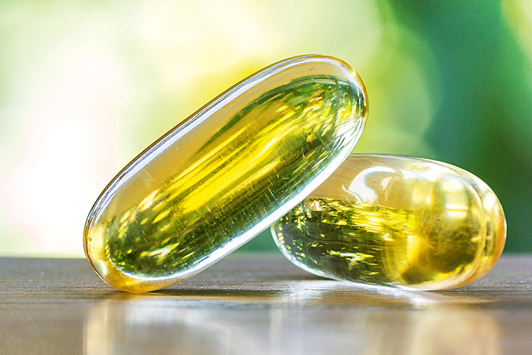
Algal Oils
But what about the original source?
Animals at the bottom of the food chain get their DHA from algae. Algal oil contains DHA that is also easily absorbed by humans with virtually no toxins. Unlike seed oils, it is not high in omega-6 fatty acids and can be harvested in an eco-friendly way.
The best part? Algal supplements are allowable regardless of how you eat! Vegans and vegetarians can finally rejoice!
Differences Between Vegan and Regular DHA Supplements

The difference between vegan DHA supplements and “regular” DHA supplements is that vegan DHA sources do not involve killing any living creatures. Consuming “regular” DHA supplements means that a mussel, a fish, or even a seal had to die so that you could get omega-3. The harvesting practices for these sources are often terrible for the environment on top of everything else. They may also have different pricing levels.
Instead, vegan DHA supplements gets you the vital nutrition you need without doing any harm.
Where Can You Get Vegan DHA?
You can get vegan DHA by eating seeds or by taking supplements or gummy vitamins. If you want optimum health, however, seeds may not be your best bet since they also contain high amounts of inflammation-inducing omega-6 fatty acids.
If you opt for supplements, we recommend one derived from algal oil. Diet Standards makes vegan DHA supplements for pregnant women in this way. These supplements may be of higher quality than generic options found at Walmart.
Why is it Even More Important for a Vegan?
Most people need DHA supplements. In fact, some studies estimate that only about 2% of people get enough from diet alone.
But vegans may need supplements or gummy vitamins even more. Fish are a huge no-no for vegans, but they are also the most bio available source of DHA from food. Though some vegans try to get enough by eating seeds, the low absorption of ALA means that most will not be able to meet their body’s needs that way. They may also inadvertently over consume omega-6 fatty acids and make their health worse.
Benefits it Provides
So is choosing vegan DHA supplements an inferior choice?
Absolutely not!
In fact, algal oil is probably the best overall option for certified DHA supplements. It is harvested in an environmentally-conscious way. It is easily absorbed. It has a very low risk of contamination.
The fact that it is vegan-friendly too is only the icing on the cake!
What About Non-Vegans?
Have you ever had an avocado? A tomato? Recipes with potatoes?
Good. Then you’ve had vegan food.
Only 2% of the population has adequate DHA intake, so supplements or gummy vitamins would help most people. Although non-vegans could take fish oil or other types of supplements, algal oil will still be lower in toxins and more environmentally friendly. Since it is just as easily absorbed, both vegans and non-vegans can enjoy the benefits of taking algal oil-based DHA supplements.
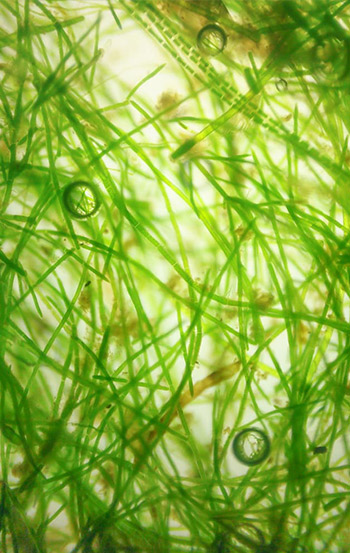
Overall Benefits

DHA provides one of the main building blocks of your brain, eyes, and skin. It is critical to overall health. Research and newsletter support the work of DHA, including:
- DHA lowers your risk of heart problems and improves your blood pressure.
- DHA fights inflammation and boosts muscle recovery after a workout.
- DHA can lower your cancer risk and prevent or slow Alzheimer’s disease.
- Supplements with DHA can also help with mental health and reproductive health for both men and women.
In particular, DHA has great benefits for pregnant women and developing babies.
Why is DHA Important for Pregnancy?

Our brains and eyes are made of omega-3 fatty acids. Humans need DHA in order to have a healthy brain and healthy vision.
And, in particular, we need it most when our brains are first developing in-utero.

This is why it is critical that pregnant women get enough DHA. Not only do they have to keep themselves healthy, but they need to make sure that their developing baby gets enough too. Especially when combined with probiotics, there can be several benefits. And beyond pregnancy, it can also help in menopause and other seasons of life.
Baby Development

DHA is an essential component for babies to develop and be healthy. Particularly in the third trimester of a pregnancy, DHA are collected in the baby’s brain. This is because, during this phase, growth and development occur at a rapid pace.
Sherry Ross, MD, from Providence Saint John’s Health Center, notes that the common fat of DHA in the brain serves functions such as thinking, motor control and even keeping the baby alive. This development to support these key functions for a baby is an ongoing process but is especially accelerated in the third trimester.
Continued Support for Infants

Even after the pregnancy, DHA fat helps to continue to support the growth and development of an infant. In fact, Nicole Beurkens states that children’s brains are growing at an accelerated rate, with a speed that’s quicker in the first year of life compared to any other time. Further, during that first important year of life, the baby’s brain grows from one-fourth to be about three-fourths of the size of what an adult’s brain is.
The successful growth of the infant’s brain can help them be set up for success in development in their continued childhood and into adulthood. Beyond intelligence, it DHA also supports the social, behavioral, cognitive and emotional development that people bring with them for the rest of their lives. For DHA in babies, studies have shown that when infants receive higher levels of DHA it leads to positive results like stronger vocabulary, information processing and learning skills in children who are preschool age. These benefits can last well into their teens. This DHA can be transferred both through breastmilk and through foods like specialty cereals that promote both DHA and probiotics benefits.

In addition to cognitive and behavior, DHA also supports their physical health such as their vision. It also plays a role in both their behavior and emotional health. Children who have a deficiency in DHA may experience heightened issues with anxiety, behavioral challenges or other mental or emotional health conditions. This can set them up for success later in life as they move into their teens.
Is It the Same as a Prenatal Multivitamin?
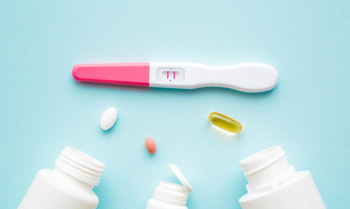
Prenatal DHA and prenatal multivitamins, whether pills or gummy vitamins, are usually NOT the same. Though a select few prenatal multivitamins contain DHA, most do not. They may also provide probiotics benefits.
PLEASE do not use Prenatal DHA to replace a prenatal multivitamin, especially with probiotics. Though you would get the benefits of DHA, you would miss out on the benefits of iron, folate, and other necessary supplements like probiotics found in prenatal multivitamins. These are also essential for healthy fetal development! You can also choose to add omega-3 supplements specific for pregnant women.
Prenatal DHA is meant to be taken along with a prenatal multivitamin. The two complement each other by ensuring you and your baby get all of the vitamins, minerals, probiotics and fatty acids necessary to help you stay healthy.
As with all supplements and probiotics, however, make sure you talk to your doctor about your vegan prenatal DHA supplements. Since there are a few multivitamins that do contain DHA as well as other probiotics, you don’t want to accidentally overdo it.
What About Breastfeeding?

Did you know that breastfeeding mothers use even more energy than pregnant mothers?
It’s true!
As a consequence, mamas who breastfeed need even more healthy nutrients than they did during pregnancy.
Just as you should continue taking your prenatal multivitamin while breastfeeding, you should keep taking your prenatal DHA supplements, especially with probiotics. It will keep you healthy and help your baby grow up strong.
Breastmilk also carries high levels of DHA that can be transferred to your baby through lactation. Your diet and probiotics may play a significant role in how effective these key nutrients like DHA are passed to your baby.
When Should You Stop Taking Supplements?
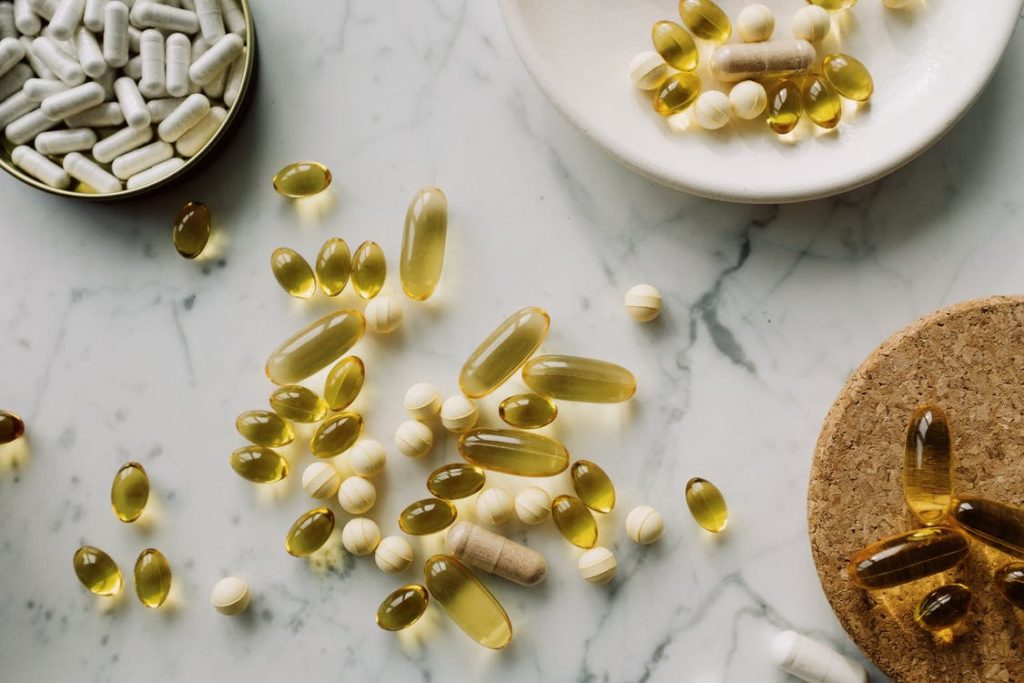
Technically, you don’t have to.
Prenatal multivitamins and probiotics are recommended for women who may become pregnant. You can even find gummy vitamins. In a similar way, prenatal DHA can be beneficial to any woman who can become pregnant, is already pregnant, or is breastfeeding.
In fact, 98% of the entire population could benefit from supplementing DHA in their diet and recipes — that includes many people who are are not expecting a baby any time soon!
It is not recommended that people (pregnant or not) take more than 2 grams of DHA supplements per day. As long as your supplements are less than that (or about 2000 mg), they is safe to use outside of pregnancy and lactation as long as you have your doctor’s oversight. Once you enter menopause, it may be worth revisiting your supplement intake.
Summary
DHA is an important source of omega-3 fatty acids. These are vital for healthy brains and eyes. They are also especially critical for developing babies. It can affect the baby’s brain development and future overall well-being for their physical, emotional and cognitive health that last with them past their teens.

Since most people do not get enough DHA from their recipes alone, supplements can be used to achieve adequate levels. This is especially important for women who may become pregnant, are pregnant, or are breastfeeding. Pair your supplement with gummy vitamins, too.
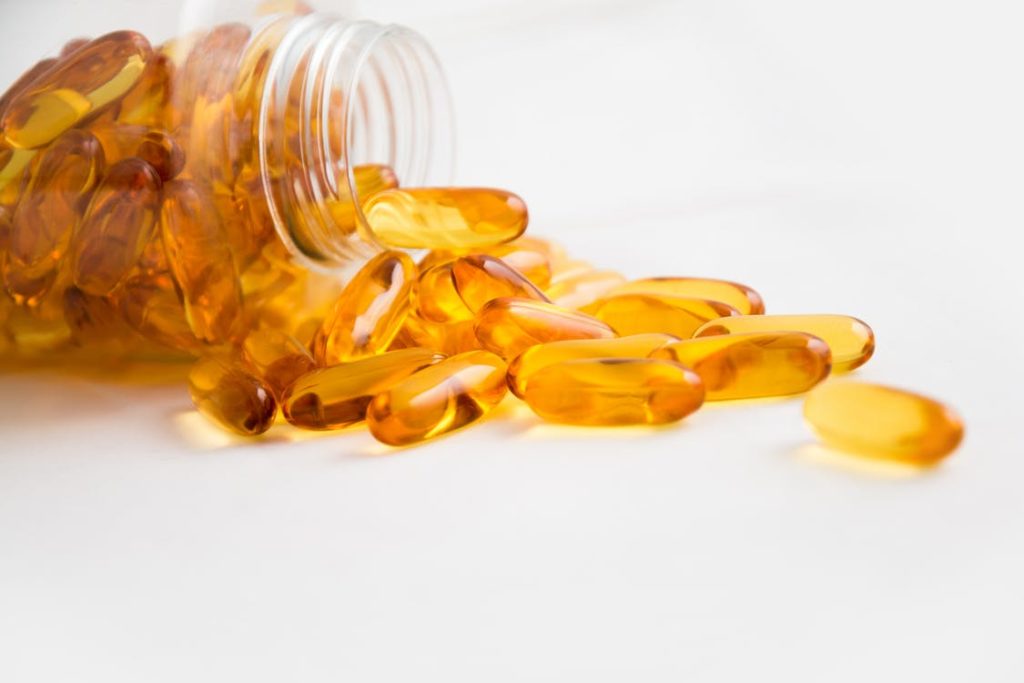
Good DHA supplements will supply DHA in a form that is easily absorbed, free from toxins, containing probiotics, and environmentally friendly. The best DHA supplement for pregnancy will also be compatible with all eating plans and recipes, including vegan and vegetarian ways of eating.

Diet Standard’s Prenatal DHA supplements are derived from algal oil. It checks all of the boxes so you can be sure that you and your baby will be getting the highest-quality omega-3s you need for optimum health!
